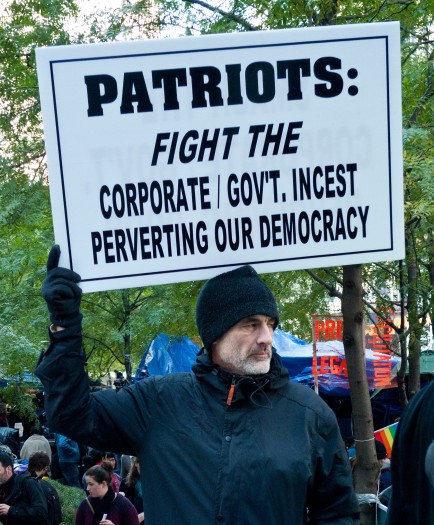Here’s the start of my December Stay Thirsty column:
Last month, New York City’s Mayor Michael Bloomberg evicted the Occupy Wall Street protestors from Zuccotti Park. Now that many cities across the country have cracked down on the encampments in public spaces, what direction will the movement take?
Over the few weeks of its existence in Zuccotti Park, Occupy Wall Street was an amazing place to see citizens exercising their rights to assemble and speak freely. By mid-November the Siena Research Institute reported that two-thirds of voters were paying attention to the Occupy Wall Street movement. Voters, by a two-to-one margin, said the movement does not represent 99 percent of Americans, but 58 percent of voters believed that the protestors should be allowed to camp in parks overnight.
Now that the movement has been forced by authorities to disperse, can Occupy Wall Street regroup and redefine itself? Can the energy of the movement get harnessed to the old-fashioned ideal of making sure all Americans get a fair shake – my assessment of what the movement is about, despite its numerous voices and varied goals.
When I traveled in Ireland with my family a couple of summers ago, our tour guide pointed out Bono’s estate to us. The guide said that an Irishman would say, “I’d like to knock him off and live there myself.” He contrasted that attitude with what he believed the typical American would say: “I’ll have a place like that myself someday.”
His anecdote pointed to the belief in socioeconomic mobility that underlies the American Dream and its implicit assumption of fairness – that workers will receive a reasonable wage for their labor and that they will have opportunities to save, purchase homes, provide education for their children and achieve financial security, if not rock star wealth.
Faith in the American Dream is eroding, as income inequality widens in the United States and the number of unemployed remains stuck at approximately 14 million, a number we all know by now significantly underestimates the actual number of suffering Americans, many of whom are severely underemployed workers or discouraged jobseekers.
To read more, click here
